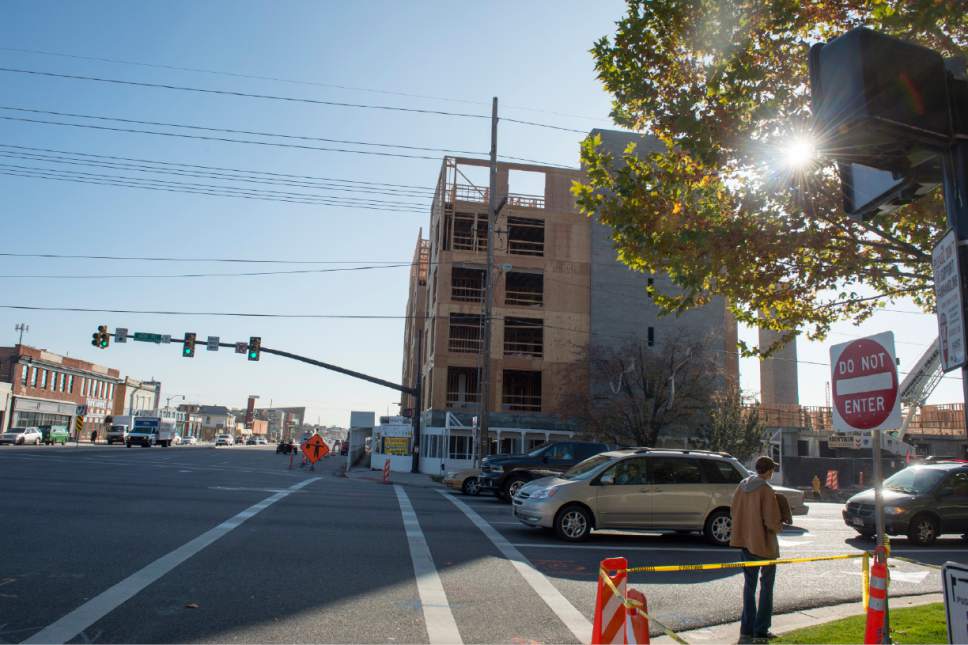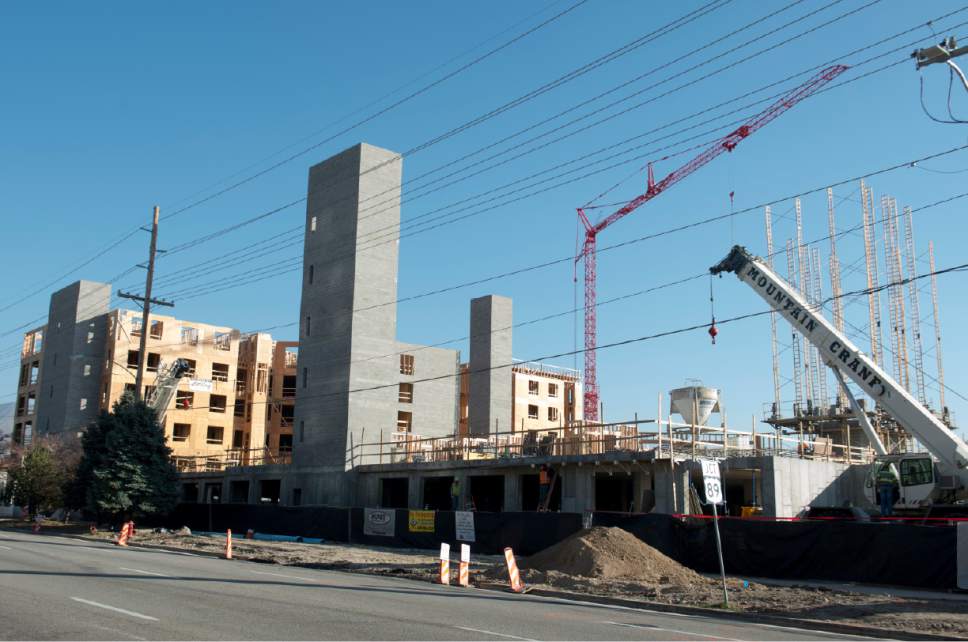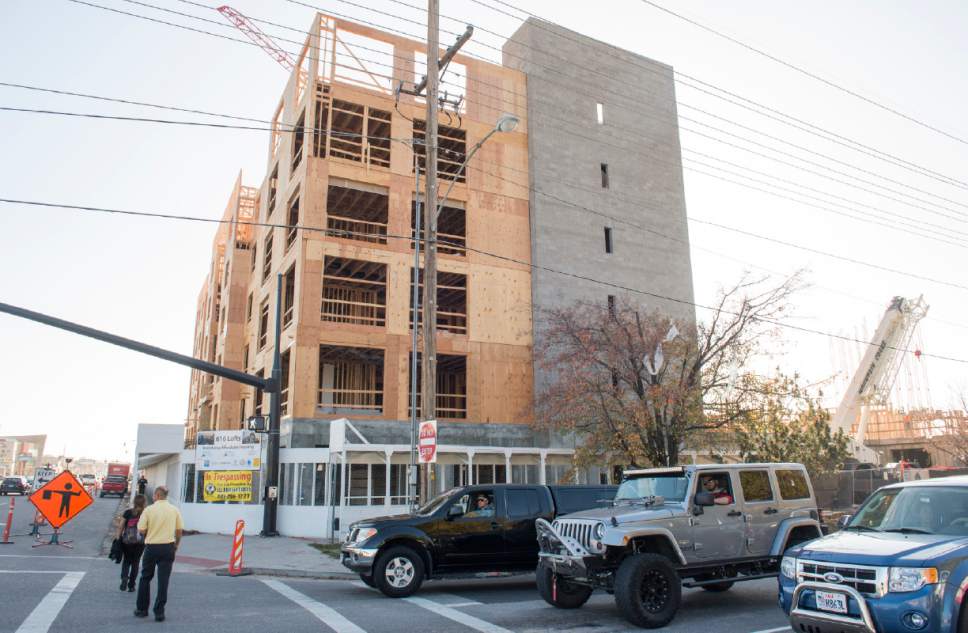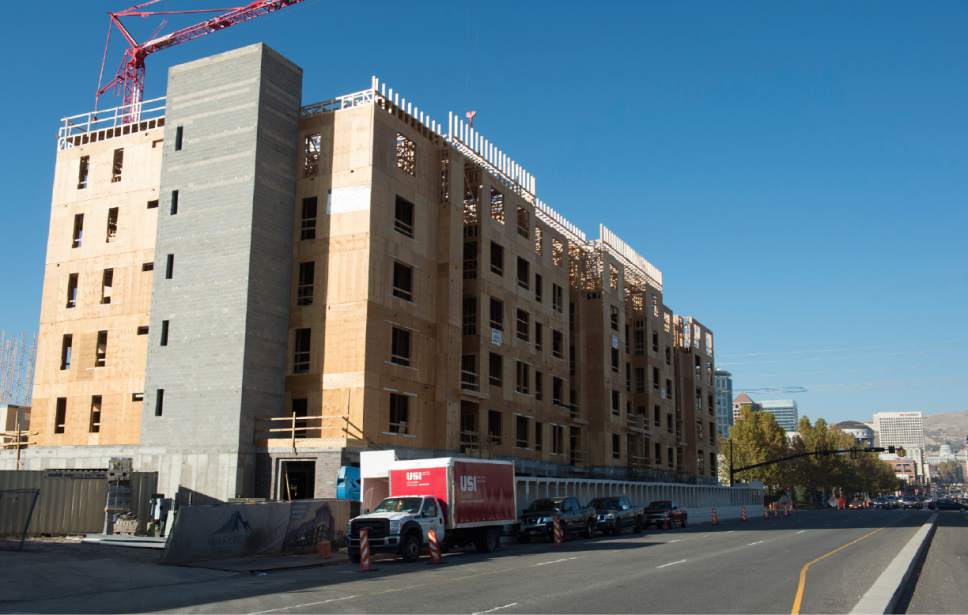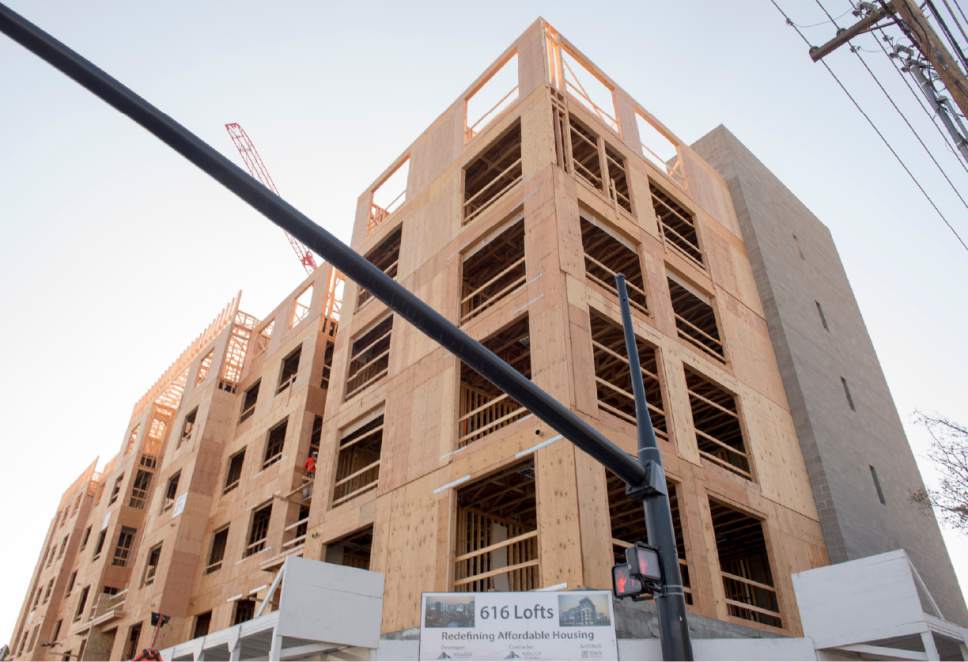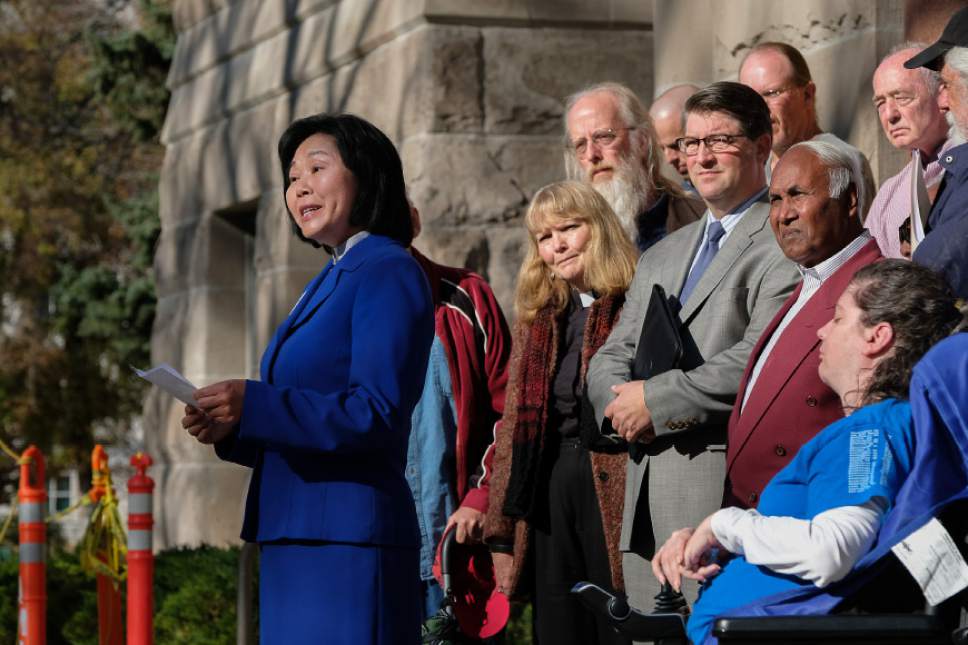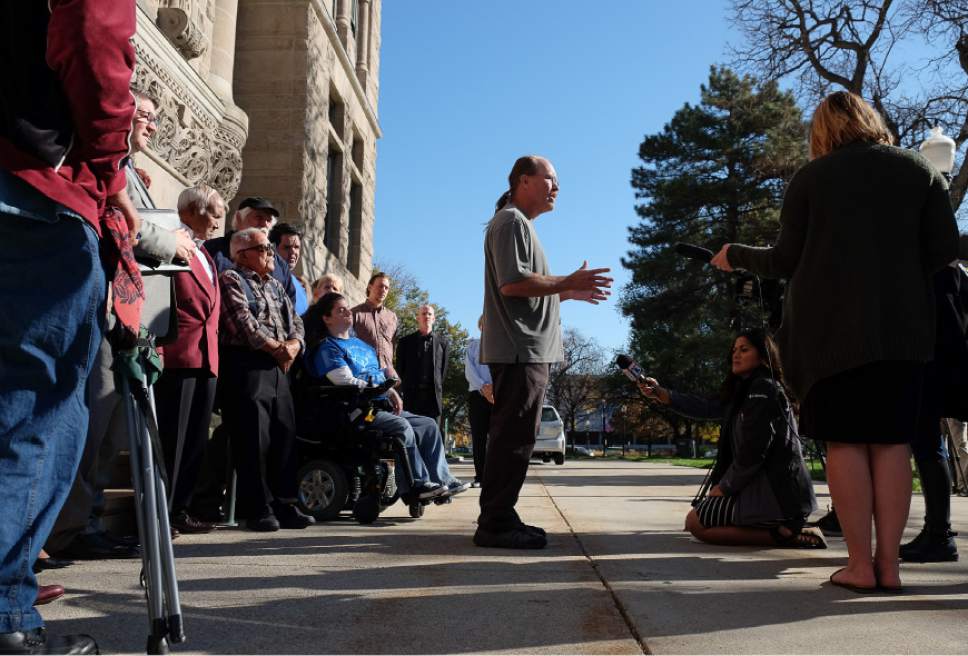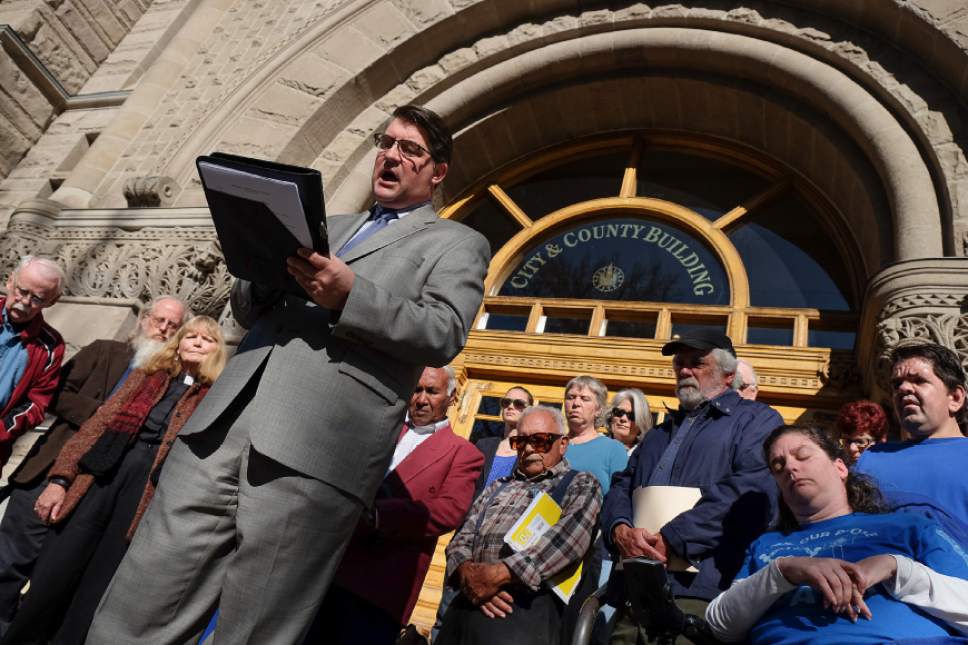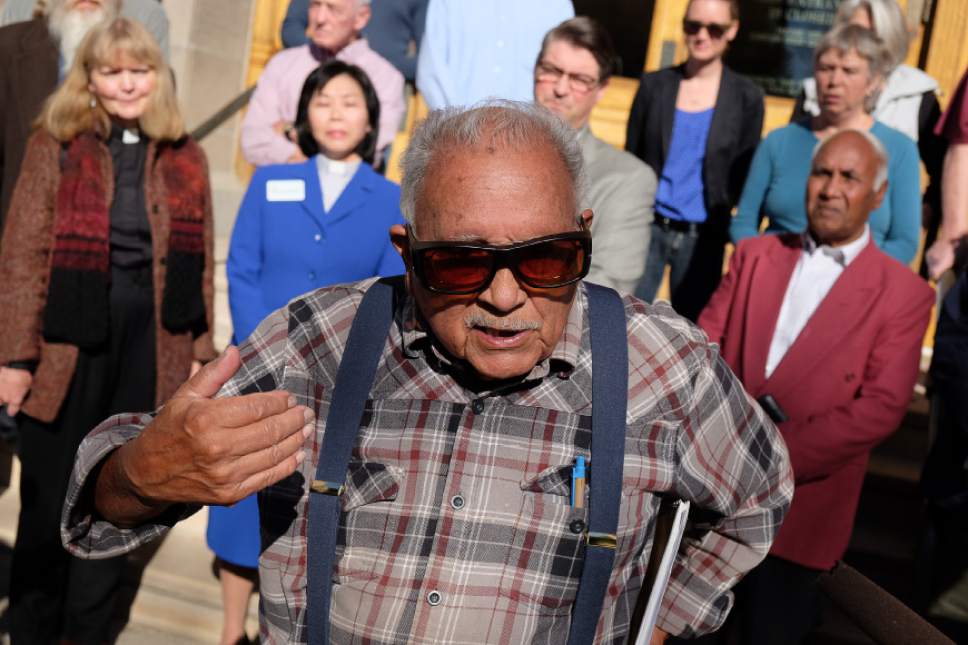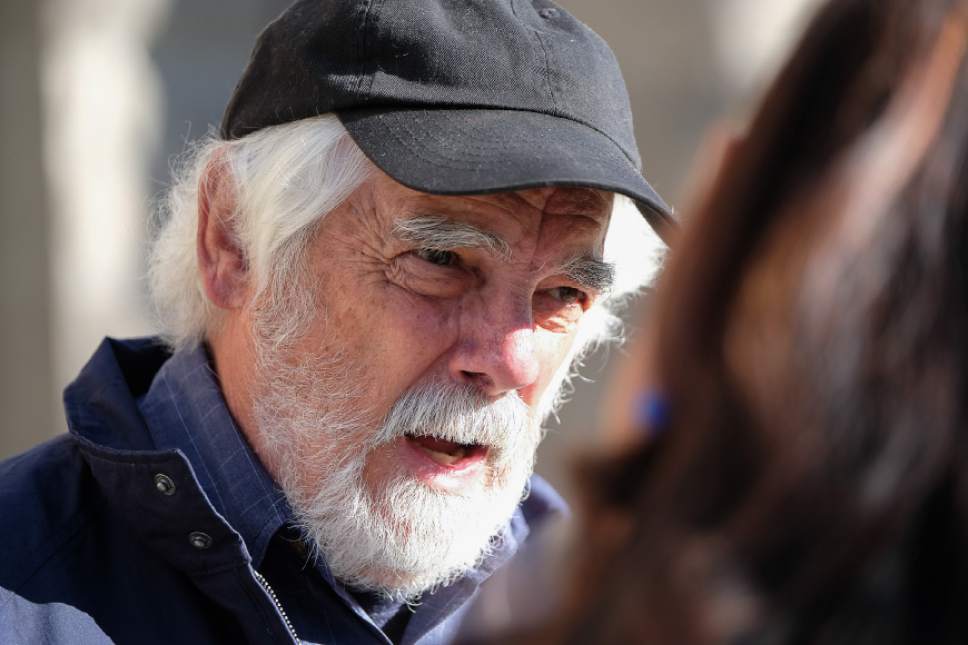This is an archived article that was published on sltrib.com in 2016, and information in the article may be outdated. It is provided only for personal research purposes and may not be reprinted.
Impatience over Salt Lake City's lack of affordable housing erupted again Friday as advocates for low-income residents called on Mayor Jackie Biskupski and the City Council to take action.
Nearly 30 community activists and faith leaders stood outside City Hall to praise the mayor and council for taking the problem seriously of late. But they also released an open letter demanding leaders move faster and more boldly in closing a housing gap estimated at more than 7,500 dwellings citywide.
"Salt Lake City is in a housing crisis," said Tim Funk, community advocate at Crossroads Urban Center, noting the council's recent budget moves within its Redevelopment Agency to devote up to $30 million to easing homelessness and the housing shortage.
"That's revolutionary and amen to that," Funk said. "We're here to urge them on. The City Council, we have to say, is a light-year ahead of the mayor on this."
The council may decide as early as Tuesday on ways to spend that money, about $12 million of which is set aside to buy land for four new homeless-service centers.
Matthew Rojas, a spokesman for Biskupski, said the mayor has been working diligently on a plan to produce new housing units that are "not just affordable but deeply affordable" — as in, within reach of those earning a fraction of median wages for the region.
The mayor, he said, also is seeking to coordinate the city's affordable-housing efforts with those at the county and state.
"This is a top priority for everyone," Rojas said.
Speaker after speaker called Friday morning for immediate approval of new spending on housing, as well as beefed-up requirements that new apartment projects include subsidized units, particularly those built close to train routes.
Longer term, they said, the city needs to put before voters an $80 million tax levy to help boost development targeting homes for those at the lowest wages.
For its part, the council has all those options on the table, Councilman Stan Penfold said, but it also is considering steps with more immediate effect.
Council members, he said, are eyeing quick action on funding a voucher-assistance program, potentially run through the city's Housing Authority and designed to help keep financially struggling residents in their homes.
The council may also approve incentives for developers with housing projects already under construction, offering them cash or land discounts to boost their affordable units.
"It's going to be a whole set of tools," Penfold said. But with the city's apartment vacancy rate now hovering around 2 percent, "it really comes down to there not being enough units."
Minimum-wage workers, minority residents, the disabled and countless others continue to be squeezed out of the city, Funk and fellow activists said, or are being forced to pay rents so high that little of their earnings are left for basics like food.
Recent studies show that up to half the renters in Utah's capital are cost-burdened, meaning they spend more than a third of their incomes on housing.
The Rev. Elizabeth McVicker, senior pastor at First United Methodist Church in Salt Lake City, recounted the story of a gainfully employed service worker paid $10 per hour "who is barely affording rent" and relies on church food banks to get by.
Other working-class residents — teachers, grocery clerks, mechanics, dental assistants — are in a similar bind.
"So many people," McVicker said, "are fighting to provide shelter and food for their children, but they're one paycheck away from homelessness."
She noted the irony of residents struggling for shelter amid a healthy economy and the city's ongoing building surge of market-rate apartments.
People of faith, McVicker and others said, have a duty to speak out as part of caring for neighbors from all walks of life.
"We need to preserve our diversity and the livability here," added the Rev. Curtis Price from Salt Lake City's First Baptist Church. "If we start shoving people out because they cannot afford to live here, we're going to lose the heart of what this city is about."
Longtime community activist Robert "Archie" Archuleta implored the Hispanic community to support added spending on affordable housing, saying it was "integral to everyone's well-being."
Elected leaders should be applauded for starting the dialogue, Archuleta said, "but we need to push them. We need to say to them, 'Enough of the excuses. Enough of the waiting. You have the funds. For heaven's sake, use them.' "
Twitter: @TonySemerad


